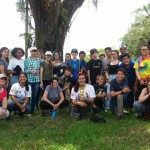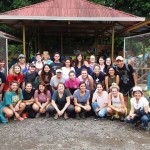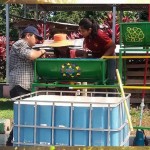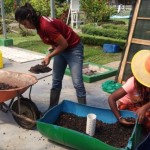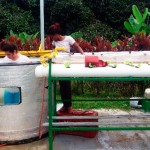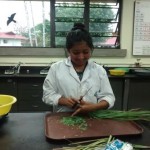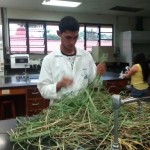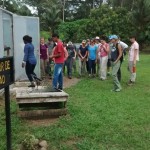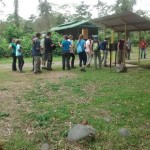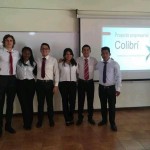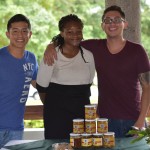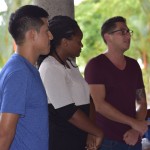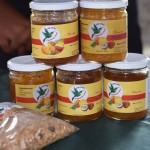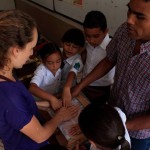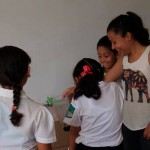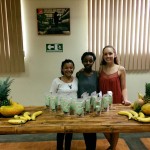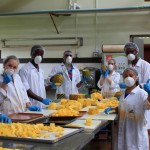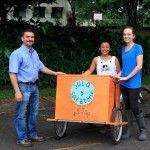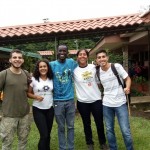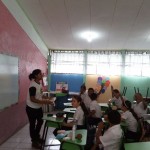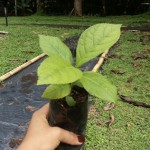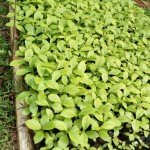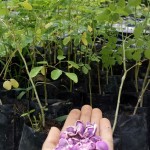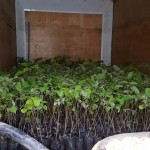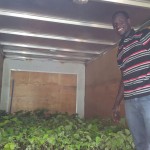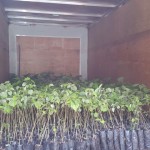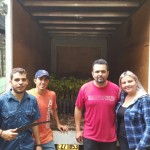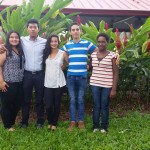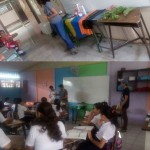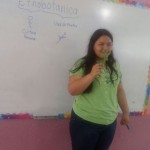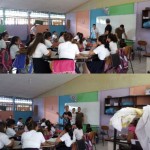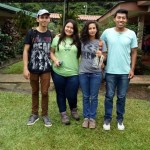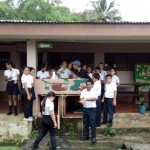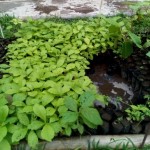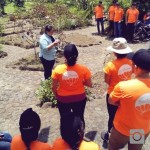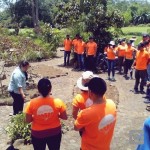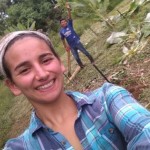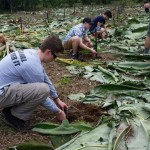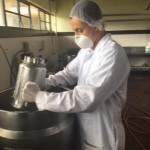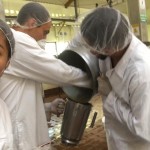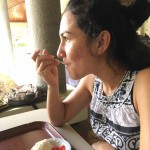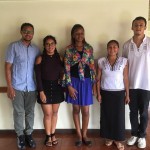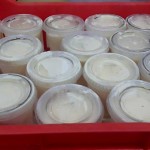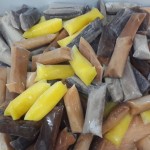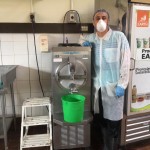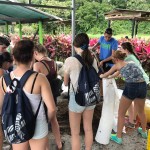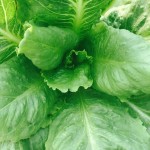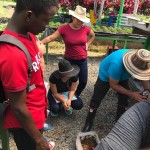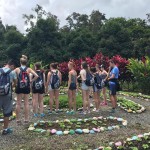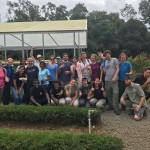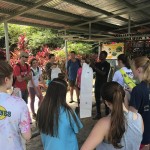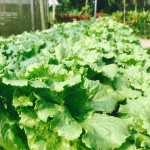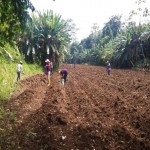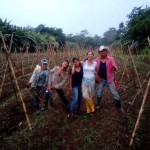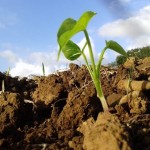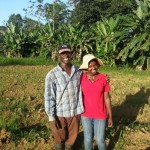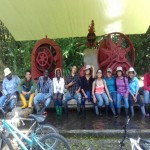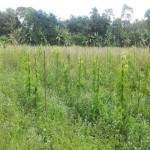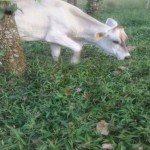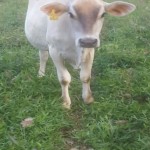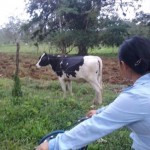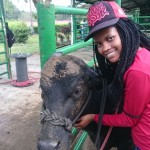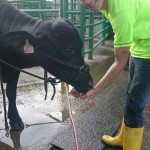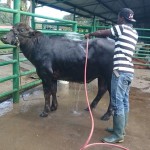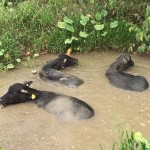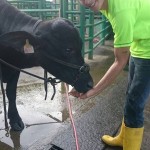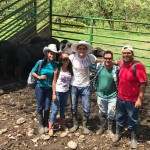The Rundown: EARTH Entrepreneurial Projects 2017
At EARTH University, the teaching process is rooted in experiential learning and centers around our students. Our Entrepreneurial Projects Program is one tool within that process. It promotes business savvy and leadership in students by assigning them the task of creating a fully operational agribusiness – partnerships are forged, plans are devised, companies are created, business loans are managed and production is administered.
Held annually at EARTH, the Agro-Entrepreneurial Summit is an activity in which the team members of each company present in the format of TED Talks, trying to sell the idea of their respective company. A medal is awarded to the first, second and third places, and the winning team is exempt from having to contribute 20 percent of its company earnings to the Business Program. The 2017 competition took place July 28.
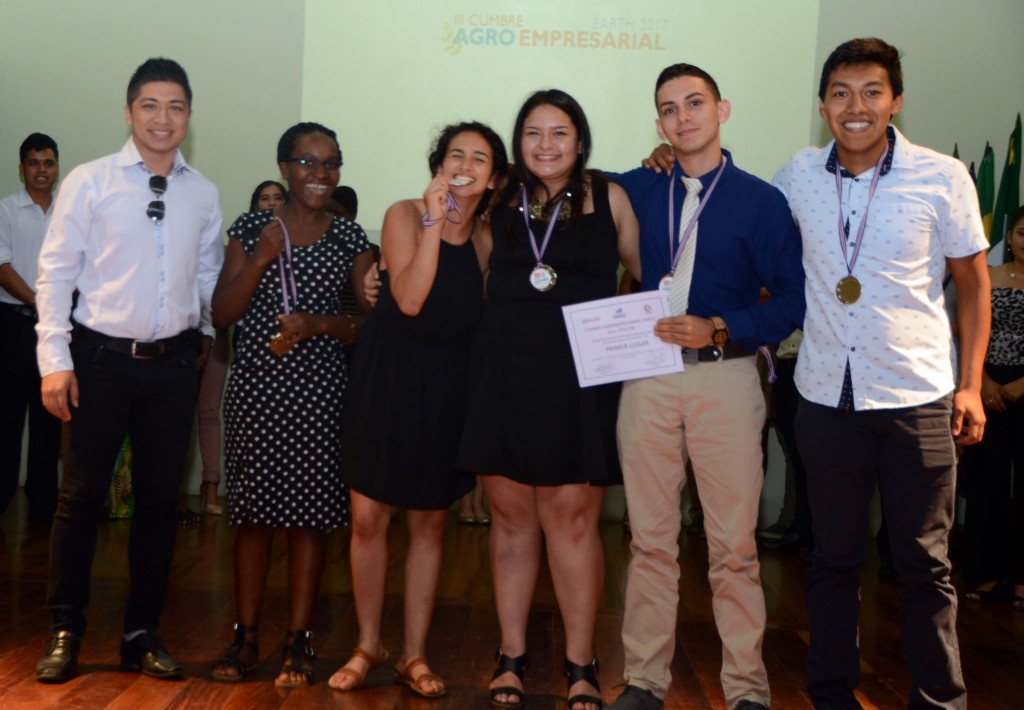
The Agrovita team took home the top prize at the annual event. Congrats to Francine Nizongabire (‘19, Rwanda), Deily Mora (‘19, Costa Rica), Tairy Torres (‘19, Ecuador), David Castrillo (‘19, Costa Rica), and Andrés José Aguirre (‘19, Ecuador).
Below are summaries of the 2017 business projects.
In addition to producing tilapia and other crops through sustainable production methods (namely aquaponics, floating roots and NFT), this business hosts workshops and tours about its methods and waste management for visitors.
The students started the project with the purpose of educating people, taking into account the common complicating factor of limited space. According to them, “It is not clear where people will begin to cultivate when there’s no longer enough space for food production. The population increases day by day, and it is increasingly difficult to meet the demand for food.”
In three-tier aquaponics, growing beds have an inert substrate, pond tilapia and crops. In NFT and floating root systems, crops such as celery are grown using very little space. The items produced by the group were sold to the EARTH community.
Contact the AQUAPLANTS team via Facebook or its website.
Choco Tours is dedicated to tours of EARTH’s Integrated Organic Farm, specifically of its shade-grown cacao. The tours also provide information on how to build an agroforestry system, demonstrations of harvesting processes, fermentation of mucilage and seed drying, among others. Workshop topics include pruning, harvest techniques, processing cacao into cocoa, composting the waste, obtaining leachates and more.
As a complementary activity, the company produces insect repellents. Repellents have been sold to University agricultural employees, faculty members and other student. The repellent is made of all natural ingredients – including citronella harvested at the organic farm – and its production wastes are totally compostable.
To better understand food processing, Colibrí produces granola and two marmalades (pineapple-coconut, pineapple-strawberry-orange). The products use around 40 percent less sugar than comparable store-bought brands, are free of preservatives and produced with ingredients grown by small farmers in the communities near the University. They are manufactured at the University’s food processing laboratory, under high safety standards.
Sula is dedicated to processing dehydrated fruit (banana, papaya, pineapple, mango) from deformed fruits that farmers would otherwise waste.
“We were all looking for ways to reduce food waste. Coming from different parts of the world, we had seen it as a very real problem in each of our countries. This is why we use discarded fruit [in our products], to give added value and produce a healthy, easy-to-carry snack,” Lucía said.
What’s more, the Sula team transports all its products by bicycle, reducing the high carbon footprint common in the transportation of fruits.
Sula is very active on social media. To know more, you can reach them on Facebook, Instagram or email at sulasa@earth.ac.cr.
The company is dedicated to the sale of timber. “All members of the group are interested in forest conservation, reforestation and all systems where trees play an important role, such as silvopastoral systems and agroforestry,” said Evili, the project’s manager.
The Floresta team is dedicated to growing trees by order, and a client can follow the growth of its ordered tree(s) from planting until chop-ready. The members encourage the use of trees in any agricultural system, for the many benefits of silviculture.
If you are interested in knowing the catalog of trees, reach out to Floresta on Facebook.
Agrovita offers agrotourism and plant breeding services, along with the sale of forest and fruit trees.
The students who participated in this project decided to diversify the company in several productive projects, including production of forest trees (melina and teak) and fruit trees (rambutan, a lychee-like fruit), tours in the ethnobotanical garden, and workshops for tourists on plant propagation, plant-based pigments and moringa trees. The company has given tours and workshops in Spanish, English, French and Italian.
The company began working in the second half of their first year with trainings and fruit growing. In the area of forestry, the company processes range from filling bags to transplants.
Send an email to agrovitaplants@earth.ac.cr or visit its Facebook page.
This company is dedicated to the production of ice cream made from EARTH-brand yogurt. The group offers two flavors (pineapple-coconut, passion fruit) of traditional ice cream and four flavors (dulce de leche, mint chocolate, cookie, passion fruit) of apretados (frozen desserts in portable packaging).
Many of the Tropic Chill team’s ingredients – fruit pulps, yogurt, dulce de leche, etc. – come from EARTH products.
Ice cream production requires two days: One to make the mixture and another to inject air into the mixture. In the preparation of apretados, the team produces all four blends and then packs and freezes them – all in the same day.
Want to learn more? Visit them on Facebook.
The Laitchou Tropic Sol team hydroponically produces salad greens. Additionally, the members give tours and workshops in EARTH’s Peri-urban Farm, teaching people how to grow crops in different climates and selling products the same day they’re harvested.
“We faithfully believe that our best recommendation letter is customer feedback, so we have a visitor log where after each tour or workshop people are asked to leave honest comments. This book is also made available to people before they hire the service,” Katherine said.
Contact this group on Facebook.
Unlike other projects, Diamante 22 preferred to sell yams because it’s an activity involving a lot of agricultural fieldwork.
“We wanted to put into practice the knowledge learned in first-year classes because there is no better way to learn than to experience it for ourselves. That way we will be able to understand, feel and live the reality of a true farmer,” María said.
This is another business project dedicated to yams.
“We thought it would be good practice to handle a large-scale crop, so we can have the experience of a producer in the real world,” Leron said.
This company is dedicated to the breeding, maintenance and development of heifers, always ensuring animal welfare and low environmental impact.
The members of this business project were interested in learning more about animal management, so they decided to implement the development of replacement heifers for EARTH’s Integrated Livestock Farm. Replacement heifers serve to supplant older cows or ones with health problems.
“We wanted to learn as much as we could from this beautiful experience, for example, vaccinating heifers, deworming and caring for animals. We are also using a silvopastoral system to guarantee the lowest environmental impact while raising livestock,” an AGROMERH team member said.
Buff Adventures is a company dedicated to the production of buffalo meat by fattening eight buffaloes through a rotational system of paddocks and a diet of regional grasses and mineral salts.
In addition they offer tourist workshops within the Integrated Livestock Farm, showcasing the different species that can be found, the food and behavior of each, the silage process and the proper management of solid waste and wastewater.
According to Monica, “We chose buffalo because it is a triple-purpose animal (meat, milk, and traction) adapted to tropical conditions. Also they have many advantages compared to other species: Buffalo meat is much healthier, it is a hardy animal not prone to as many diseases as cattle, and high-cost feed is not needed, so they offer an excellent feed-to-meat conversion.”
Compared to beef, buffalo meat has 40 percent less cholesterol and 11 percent more protein, along with less fat and more minerals.
If you are interested in learning more about these animals, contact the company via Facebook.

